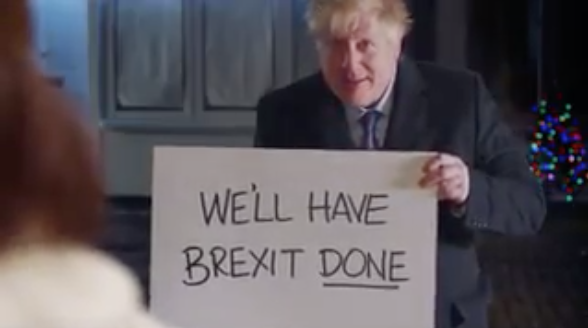
Who is winning the media war? Boris, actually | thearticle
- Select a language for the TTS:
- UK English Female
- UK English Male
- US English Female
- US English Male
- Australian Female
- Australian Male
- Language selected: (auto detect) - EN
Play all audios:

Who is winning the war in the air? On the ground, Labour’s legions have outnumbered the Tories by as much as five to one, though in the key marginals the battle has been fiercely contested.
Personal encounters with candidates and canvassers still matter. But this election may yet turn on what happens in the media, old and new. The received wisdom has been similar here. The
narrative goes like this: throughout the campaign, the Conservatives have been on the defensive on television and outnumbered on social media. On Facebook, Jeremy Corbyn had almost 1.6
million followers last week, while Boris Johnson had fewer than 800,000. Indeed, the Prime Minister is also behind Nigel Farage and only just ahead of Sadiq Khan. Corbyn was also ahead on
Instagram, popular among young voters, and his videos were more widely shared. On television, the Andrew Neil saga obscured the fact that Boris Johnson has given more than 120 interviews in
this campaign, more than any of his predecessors. He has been subjected to hectoring and insulted to his face. Only this week there was the incident when he was confronted by a journalist
who demanded that he be filmed looking at a picture of a child sleeping on coats in hospital, supposedly because of the “crisis in A & E”. He refused. The story did not stand up to
scrutiny, but the message was clear: Boris doesn’t care about the NHS. Nobody questioned whether the Prime Minister was within his rights in refusing to play the part assigned to him by a
hostile interviewer. What is less clear is what the public thinks of these antics by the media. Andrew Neil’s three-minute mockery of the Prime Minister on what was supposed to be an
impartial BBC programme has clearly hit home — but not in the way the presenter intended. In his final appearances, Boris Johnson is now openly campaigning to abolish the BBC licence fee, a
pledge that was not included in the Conservative manifesto. He evidently thinks that scrapping an antiquated and regressive tax on television ownership will be popular, particularly with
those over 75 whose exemption is now to be means-tested. The BBC made a strategic error in supposing that well-heeled pensioners would not mind coughing up £154.50 per annum. And the
corporation has made a series of tactical errors in handling Andrew Neil. It first attempted to retire him, then after a rapid U-turn gave him his own show, but has now allowed him to use it
as a platform to pursue what has become a personal quarrel with his former colleague at the _Spectator. _The Tories have decided that many viewers who have hitherto enjoyed Neil’s combative
interviewing style now feel that he has got too big for his boots. His attempt to shame Boris Johnson by throwing down the gauntlet on live TV descended into bathos. Such
self-aggrandisement by television interviewers is based on the notion that they are the only journalists who can hold politicians to account. They justify their conduct on the grounds that
it is “forensic”. Ask a QC whether such badgering and aggression nears any resemblance to legal scrutiny, however, and you will be laughed out of court. The art of cross-examination consists
in allowing the witness to take as much time as they wish. It is a war of attrition, not a blitzkrieg. If genuinely forensic interviews were attempted on television, the audience would
simply switch off or fall asleep. Any comparison between real-life courtroom dramas and the monstering of politicians by a Paxman, a Humphrys or a Maitlis is simply risible. Such
gladiatorial contests shed more heat than light. In Lord Reith’s definition of the BBC’s purpose — to inform, to educate, to entertain— the Andrew Neil show is firmly in the category of
entertainment. In this election, it seems unlikely that any of the broadcast coverage will have made much difference to the result. What might make an impact, however, is the video advert
that the Tories have saved until the last few days of campaigning. It is a genuinely witty parody of _Love Actually, _showing Boris Johnson appearing at a voter’s door to beguile her with
his silent placards. By raising a smile with his dumb show, then delivering his punchline aloud — “Enough. Enough. Let’s get this done” — the Prime Minister will have simultaneously reminded
voters that he can make them laugh and played on their desire to move on. If the Tories do win on Thursday, this video will become a classic of political advertising. The Saatchis’ 1979
poster “Britain’s not working” suited Mrs Thatcher’s character. This one suits that of Boris Johnson’s. That is how elections are really won.
